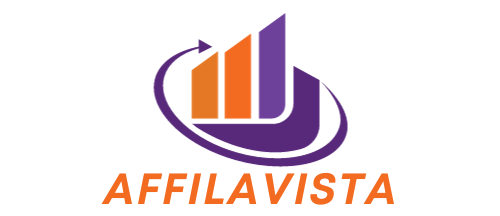You’re eager to learn how to effectively promote affiliate products and boost your earnings. In this article, we will explore various strategies and techniques that can help you maximize your affiliate marketing success. Whether you’re a seasoned affiliate marketer or just starting out, these tips and tricks will provide you with valuable insights on how to stand out in a competitive market and drive more traffic to your affiliate links. Get ready to take your affiliate marketing game to the next level and start earning those enticing commissions.

Content Marketing
Content marketing is a powerful strategy that can help you promote affiliate products effectively. By creating high-quality content that resonates with your target audience, you can establish yourself as an expert in your niche and build trust with your readers. This can be achieved by consistently delivering valuable and engaging content, such as blog posts, articles, videos, and infographics.
Utilizing SEO strategies is essential for increasing the visibility of your content. Conducting thorough keyword research and optimizing your content for relevant keywords can help your blog or website rank higher in search engine results. This will ultimately attract more organic traffic and increase your chances of generating affiliate sales.
In addition to optimizing for keywords, it’s important to provide value to your readers. Offer informative and educational content that addresses their pain points and provides practical solutions. By focusing on the needs and interests of your audience, you’ll establish yourself as a credible source and encourage them to return to your website for more insights and recommendations.
Guest blogging is another effective content marketing strategy. By writing guest posts for reputable websites in your niche, you can reach a wider audience and attract more potential customers. Make sure to provide valuable content in your guest posts and include relevant links back to your own website or blog. This will not only drive traffic to your site but also improve your search engine rankings.
Lastly, don’t forget to leverage social media platforms for your content marketing efforts. Share your content on social media, engage with your followers, and encourage them to share your content with their networks. Social media platforms provide a great opportunity to promote your affiliate products to a larger audience and build a community around your brand.
Email Marketing
Building an engaged email list is crucial for effective affiliate product promotion. Encourage your website visitors to subscribe to your email list by offering valuable incentives, such as exclusive content, discounts, or freebies. This will help you grow your email list with people who are genuinely interested in your niche and your recommendations.
Segmenting your email list allows you to tailor your email campaigns to specific groups of subscribers based on their interests, demographics, or purchasing behavior. This personalization increases the chances of your subscribers engaging with your emails and making purchases through your affiliate links.
When crafting your emails, focus on creating compelling and engaging content that grabs your readers’ attention. Use persuasive language, compelling storytelling, and call-to-action buttons to encourage your subscribers to click on your affiliate links and make a purchase.
Personalizing your email campaigns is another effective strategy to promote affiliate products. Address your subscribers by their name and send them personalized recommendations based on their previous purchases or browsing behavior. By showing that you understand their needs and preferences, you’ll increase the chances of them trusting your recommendations and making a purchase.
Providing exclusive offers to your email subscribers is a great way to incentivize them to click on your affiliate links. Offer special discounts, limited-time promotions, or access to exclusive content that they cannot find elsewhere. This will make your subscribers feel valued and more likely to take action.
Including a clear call to action in your emails is critical to driving conversions. Use compelling language that encourages your subscribers to click on your affiliate links and make a purchase. Make your call to action buttons stand out by using contrasting colors and placing them strategically within your email.
Social Media Marketing
Identifying your target audience is the first step to effectively promote affiliate products through social media marketing. Understand the demographics, interests, and preferences of your target audience to ensure that you’re reaching the right people with your promotions. Conduct market research, analyze your competitors’ social media presence, and engage with your audience to gain valuable insights.
Choosing the right social media platform is crucial for reaching and engaging with your target audience. Focus on the platforms that your audience is most active on and tailor your content accordingly. For example, if your target audience is primarily composed of young professionals, LinkedIn may not be the best platform for your promotions. Instead, platforms like Instagram or TikTok may be more effective.
Creating engaging content is key to capturing the attention of your social media followers and promoting affiliate products effectively. Use visually appealing images, videos, or infographics that communicate your message effectively. Incorporate storytelling and create content that resonates with your audience, evokes emotions, and encourages them to take action.
Utilizing influencer marketing can significantly boost your social media marketing efforts. Collaborate with influencers in your niche who have a strong following and can promote your affiliate products to their audience. Make sure to choose influencers whose values align with your brand and whose audience is likely to be interested in the products you’re promoting.
Running contests and giveaways is an effective strategy to increase engagement, attract new followers, and promote your affiliate products. Encourage your social media followers to participate in contests, share your content, or tag their friends to enter. This will not only increase brand awareness but also generate excitement and encourage your followers to take action.
Leveraging social media ads can help you reach a larger audience and promote affiliate products more effectively. Platforms like Facebook, Instagram, and Twitter offer robust advertising tools that allow you to target specific demographics, interests, and behaviors. Experiment with different ad formats, images, and messaging to optimize your campaigns and drive conversions.
Search Engine Optimization (SEO)
Performing keyword research is crucial to optimize your content and improve your search engine rankings. Identify relevant keywords that your target audience is searching for and incorporate them naturally into your website content, blog posts, and product recommendations. This will help search engines understand the relevance of your content and increase your chances of appearing higher in search results.
Optimizing your website loading speed is essential for both user experience and search engine optimization. Slow-loading websites can lead to high bounce rates and lower search engine rankings. Invest in reliable web hosting, compress images, minimize HTTP requests, and utilize caching to ensure that your website loads quickly and efficiently.
Optimizing meta tags and descriptions is an important on-page SEO technique. Craft compelling and informative meta titles and descriptions that accurately reflect the content of your pages. Include relevant keywords and entice users to click on your website when they see it in search engine results.
Creating high-quality backlinks is another crucial aspect of effective SEO. Seek opportunities to get backlinks from reputable websites in your niche. This can be done by guest blogging, collaborating with influencers, or building relationships within your industry. High-quality backlinks signal to search engines that your website is a trustworthy source of information, resulting in higher rankings.
Improving user experience on your website is not only crucial for SEO but also for promoting affiliate products effectively. Ensure that your website is user-friendly, easy to navigate, and provides valuable information to your visitors. Pay attention to page load times, mobile responsiveness, and clear navigation menus to enhance the overall user experience.
Mobile optimization is essential in today’s digital landscape. With the majority of internet users accessing content through mobile devices, optimizing your website and content for mobile is a must. Make sure your website is responsive, loads quickly on mobile devices, and provides a seamless user experience. This will not only improve your search engine rankings but also increase your chances of driving affiliate sales.

Video Marketing
Creating engaging and informative videos is an effective way to promote affiliate products in an entertaining and visually appealing format. Use high-quality visuals, captivating storytelling, and clear messaging to convey the benefits and features of the products you’re promoting. Demonstrate how the products can solve your audience’s problems or fulfill their needs.
Hosting webinars is another powerful video marketing strategy. Use webinars to provide in-depth information about the affiliate products you’re promoting, answer your audience’s questions, and demonstrate their value. Webinars allow you to establish yourself as an expert and build trust with your audience, increasing the chances of them making a purchase.
Optimizing video titles and descriptions is crucial for improving the discoverability of your videos. Include relevant keywords in your video titles and descriptions to increase the chances of your videos appearing in search results. Craft compelling and informative descriptions that entice viewers to watch your videos and click on your affiliate links.
Utilizing YouTube advertising can significantly boost the reach and visibility of your videos. YouTube offers various ad formats, including in-stream ads, bumper ads, and sponsored cards, allowing you to target specific demographics and interests. Experiment with different ad formats and targeting options to optimize your campaigns and drive conversions.
Collaborating with influencers in your niche is a powerful way to leverage their existing audience and promote your affiliate products through video marketing. Partner with influencers who align with your brand values and have a strong following on platforms like YouTube or TikTok. Create engaging and informative videos together that showcase the benefits of the products you’re promoting.
Including affiliate links in your video descriptions is essential for driving conversions. Make sure to disclose your affiliate partnerships transparently and prominently place your affiliate links in the video descriptions. Provide clear instructions on how viewers can purchase the products you’re promoting and highlight any exclusive discounts or offers available.
Influencer Marketing
Identifying relevant influencers in your niche is the first step to harnessing the power of influencer marketing. Look for influencers who have a strong following and whose values align with your brand. Research their content, engagement rates, and audience demographics to ensure they are a good fit for promoting your affiliate products.
Engaging with influencers is important to build relationships and establish partnerships. Follow their social media accounts, comment on their posts, and share their content with your audience. Engaging with influencers demonstrates your genuine interest in their work and increases the chances of them being receptive to collaborating with you.
Providing affiliate commission to influencers is a common practice in influencer marketing. Offer a commission or a fixed fee for every sale or lead generated through their affiliate links. This provides an additional incentive for influencers to promote your affiliate products and can result in both increased brand exposure and affiliate sales.
Offering exclusive discount codes to influencers allows them to provide added value to their audience and incentivizes their followers to make a purchase. Discount codes can be customized to each influencer, which helps track their performance and determine the success of their promotional efforts.
Sponsored content is another effective way to leverage influencer marketing. Work with influencers to create sponsored posts or videos that promote your affiliate products. These posts should be authentic and align with the influencer’s usual content style to ensure the message resonates with their audience and doesn’t feel forced.
Tracking influencer performance is crucial to evaluate the success of your influencer marketing campaigns. Monitor the engagement, click-through rates, and ultimately, the conversions generated through the influencer’s content. Analyze the data and adjust your strategies accordingly to optimize your influencer partnerships and drive better results.

Paid Advertising
Google Ads is a powerful paid advertising platform that can help you reach a wider audience and promote your affiliate products effectively. Utilize Google Ads’ keyword targeting, display ads, and remarketing features to ensure your ads are seen by the right people at the right time. Experiment with different ad formats, bidding strategies, and targeting options to optimize your campaigns and maximize your conversions.
Social media ads, such as Facebook Ads, Instagram Ads, and Twitter Ads, offer a highly targeted and cost-effective way to promote affiliate products. Leverage the detailed targeting options provided by these platforms to reach your specific audience segments. Create compelling ad copy, eye-catching visuals, and clear calls to action to drive conversions.
Display advertising allows you to reach a broader audience by placing your ads on relevant websites across the internet. Use display ads to raise awareness of your affiliate products, build brand recognition, and drive traffic to your website or landing page. Experiment with different ad sizes, placements, and targeting options to optimize your display ad campaigns.
Banner ads are a common form of display advertising that can be placed on various websites and platforms. Create visually appealing banner ads that grab the attention of your target audience and entice them to click through to your website. Use clear messaging, vibrant colors, and compelling visuals to maximize the effectiveness of your banner ads.
Retargeting campaigns are an effective way to re-engage with users who have visited your website or shown interest in your affiliate products. By placing a tracking pixel on your website, you can show targeted ads to users who have previously interacted with your site. This helps remind them of the products they were interested in and encourages them to make a purchase.
Affiliate program ads can be a valuable addition to your paid advertising strategy. Join affiliate programs that offer ad creatives, such as banners or text ads, that you can use to promote the products you’re affiliated with. These ads are typically provided by the merchant or affiliate network and can be placed on your website, blog, or relevant advertising platforms.
Affiliate Review Websites
Creating a review website can be a lucrative way to promote affiliate products. Focus on a specific niche and write in-depth and comprehensive reviews of the products you’re promoting. Provide honest and unbiased assessments, highlighting the benefits and drawbacks of each product. Your reviews should be informative, engaging, and genuinely helpful to your audience.
Writing in-depth reviews showcases your expertise and helps your audience make informed purchasing decisions. Cover all aspects of the product, including its features, functionality, pricing, and any unique selling points. Include personal anecdotes, use cases, and real-life examples to make your reviews relatable and engaging.
Rating products allows your audience to quickly assess the quality and value of the products you’re promoting. Use a transparent rating system, such as a star rating or a numerical scale, to convey the overall quality or performance of the products. Make sure to explain the rationale behind your ratings to provide context for your audience.
Comparing competing products is a valuable service you can offer to your audience. Compare the features, pros, and cons of similar products side by side, highlighting the differences and similarities. This helps your audience understand the value proposition of each product and make an informed decision based on their needs and preferences.
Including affiliate links in your reviews is crucial for driving conversions. Make sure to disclose your affiliate relationships transparently and prominently place your affiliate links throughout your reviews. Offer clear instructions on how readers can purchase the products and emphasize any exclusive discounts or offers available.
Optimizing your review website for search engines is essential to attract organic traffic and increase your chances of conversions. Perform keyword research, incorporate relevant keywords into your content, and optimize meta titles and descriptions. Creating valuable and user-friendly content by addressing common search queries and needs will help your website rank higher in search engine results.
Collaborate with Other Affiliate Marketers
Establishing networking relationships with other affiliate marketers can be mutually beneficial. Connect with other marketers in your niche through industry events, online communities, or social media platforms. Building relationships allows you to share insights, strategies, and resources, and potentially collaborate on joint promotions.
Creating joint promotions with other affiliate marketers can amplify your reach and increase your chances of conversions. Coordinate with other marketers to run joint giveaways, contests, or promotional campaigns. By leveraging each other’s audiences, you can collectively reach a larger pool of potential customers and generate more affiliate sales.
Cross-promoting each other’s affiliate products is another effective strategy to promote your offerings. Partner with other marketers to promote their products to your audience in exchange for them promoting your products to their audience. This allows you to tap into each other’s networks and leverage the trust and credibility built with your respective audiences.
Sharing affiliate strategies with other affiliate marketers can lead to valuable insights and new approaches to promoting affiliate products. Set up mastermind groups, join online forums or attend affiliate marketing conferences to connect with other marketers and exchange knowledge. By learning from each other’s successes and failures, you can refine your strategies and achieve better results.
Exchange guest blogging opportunities with other affiliate marketers to expand your reach and promote your affiliate products to new audiences. Write guest blog posts for each other’s websites, including relevant affiliate links, and provide valuable content to each other’s readers. This can drive traffic to your website, increase brand exposure, and generate affiliate sales.
Collaborating on webinars or workshops is a powerful way to educate your audience, establish yourself as an expert, and promote your affiliate products effectively. Partner with other affiliate marketers, industry experts, or influencers to co-host webinars or workshops that offer valuable insights and practical tips. Strategically promote your affiliate products within the webinar or workshop content to generate sales.
Utilize Affiliate Networks
Joining established affiliate networks is a convenient way to find and promote affiliate programs. Affiliate networks act as intermediaries between affiliates and merchants, providing a platform for affiliates to browse and join various affiliate programs. Sign up for reputable affiliate networks that offer a wide range of affiliate programs in your niche.
Browse available affiliate programs within the affiliate networks you’ve joined to find products that align with your niche and target audience. Take into consideration factors such as commission rates, product quality, merchant reputation, and affiliate support. Choose programs that offer competitive commission rates and provide valuable resources to help you promote their products effectively.
Comparing commission rates is important to ensure that you’re earning fair compensation for your promotional efforts. Evaluate the commission structures of different affiliate programs and consider factors such as the average order value, conversion rate, and cookie duration. Look for programs that offer higher commission rates or tiered commission structures that reward your performance.
Evaluating program reliability is critical to ensure that you’re partnering with trustworthy merchants. Research the reputation of the affiliate program and merchant by reading reviews, checking their social media presence, and researching their customer feedback. Look for programs that have a track record of timely payments, good customer support, and transparent affiliate policies.
Accessing affiliate resources and support is important to maximize your success as an affiliate marketer. Choose affiliate programs that provide comprehensive resources, including banners, product images, promotional materials, and product data feeds. Look for programs that offer dedicated affiliate managers or support teams who can assist you with any questions or issues you may have.
Tracking performance and earnings is crucial to monitor the success of your affiliate marketing efforts. Most affiliate networks provide robust tracking and reporting tools that allow you to track clicks, conversions, and earnings in real-time. Analyze the performance of your affiliate campaigns, identify areas for improvement, and optimize your strategies based on the results.

